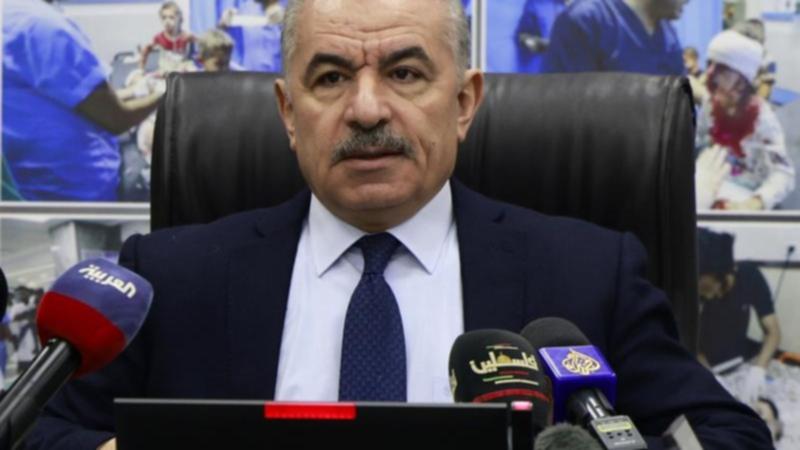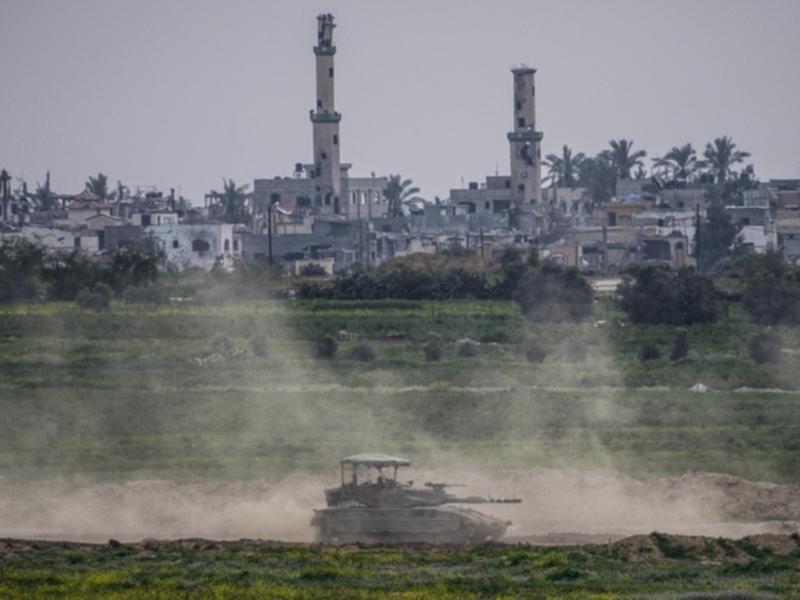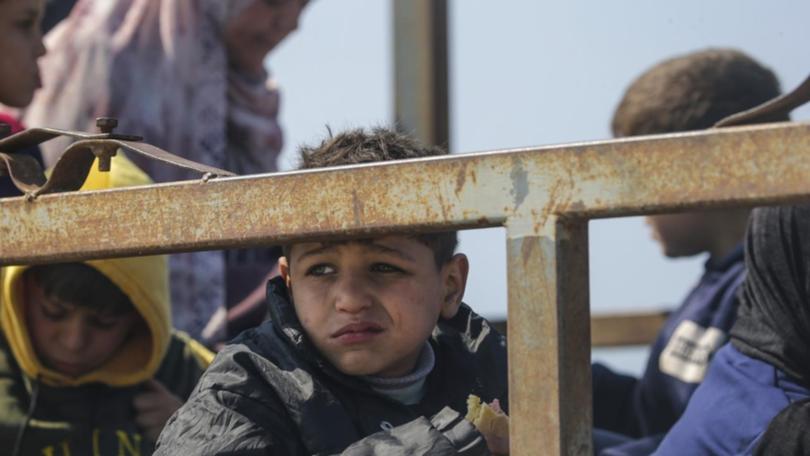Palestinian PM resigns amid pressure over post-war Gaza
Palestinian President Mahmoud Abbas has accepted the resignation of Prime Minister Mohammad Shtayyeh amid international pressures on the Palestinian Authority.

Palestinian Prime Minister Mohammad Shtayyeh has announced his resignation as the Palestinian Authority looks to build support for an expanded role following Israel’s war against the Islamist group Hamas in Gaza.
The move comes amid growing US pressure on President Mahmoud Abbas to shake up the PA as international efforts intensify to stop the fighting in Gaza and begin work on a political structure to govern the enclave after the war.
Abbas accepted Shtayyeh’s resignation and asked him to stay on as caretaker until a permanent replacement is appointed.
Sign up to The Nightly's newsletters.
Get the first look at the digital newspaper, curated daily stories and breaking headlines delivered to your inbox.
By continuing you agree to our Terms and Privacy Policy.The Palestinian Authority, created about 30 years ago as part of the interim Oslo peace accords, has been badly undermined by accusations of ineffectiveness and corruption and the prime minister holds little effective power.

But Shtayyeh’s departure marks a symbolic shift that underlines Abbas’ determination to ensure the PA maintains its claim to leadership as international pressure grows for a revival of efforts to create a Palestinian state alongside Israel.
In a statement to cabinet, Shtayyeh, an academic economist who took office in 2019, said the next administration would need to take account of the emerging reality in Gaza, which has been laid waste by nearly five months of heavy fighting.
He said the next stage would “require new governmental and political arrangements that take into account the emerging reality in the Gaza Strip, the national unity talks and the urgent need for an inter-Palestinian consensus”.
In addition, it would require “the extension of the Authority’s authority over the entire land, Palestine”.
No successor has been appointed but Abbas is widely expected to name Mohammad Mustafa, a former World Bank official who is chairman of the Palestine Investment Fund (PIF) with experience of rebuilding Gaza after a previous war in 2014.
There has been no word on elections, which have not been held since 2006.
The Palestinian Authority exercises limited governance over parts of the occupied West Bank but lost power in Gaza following a factional struggle with Hamas in 2007.
It has been badly weakened over the years and surveys indicate it is deeply unpopular among Palestinians.
But it remains the only leadership body generally recognised by the international community.
Palestinian leaders say its ability to exercise effective governance has been effectively blocked by Israeli restrictions, which have included withholding tax revenues due under the Oslo accords.
For months, the PA has been unable to pay full public sector salaries because of a row over the refusal by the Israeli finance ministry to release part of the funds.

Israel has long accused the PA of supporting terrorism by offering financial support to the families of militants killed by Israeli forces and allowing antisemitic material to be included in school text books.
Israel has also attacked Palestinian leaders, including Abbas, for not condemning the Hamas-led attack on Israel on October 7.
Fatah, the faction that controls the PA, and Hamas, designated as a terrorist organisation by the United States and the European Union, have made efforts to bridge their differences and reach an agreement over a unity government and are due to meet in Moscow on Wednesday.
A senior Hamas official said the move had to be followed by a broader agreement on governance for the Palestinians.
“The resignation of Shtayyeh’s government only makes sense if it comes within the context of national consensus on arrangements for the next phase,” senior Hamas official Sami Abu Zuhri told Reuters.
Israel has vowed to destroy Hamas and says that for security reasons, it will not accept Palestinian Authority rule over Gaza after the war, which broke out following the Hamas-led attack on southern Israel on October 7, which killed 1200 Israelis and foreigners, according to Israeli tallies.
So far, almost 30,000 Palestinians have been killed in the Gaza fighting, according to Palestinian health authorities, and almost the entire population have been driven from their homes.
